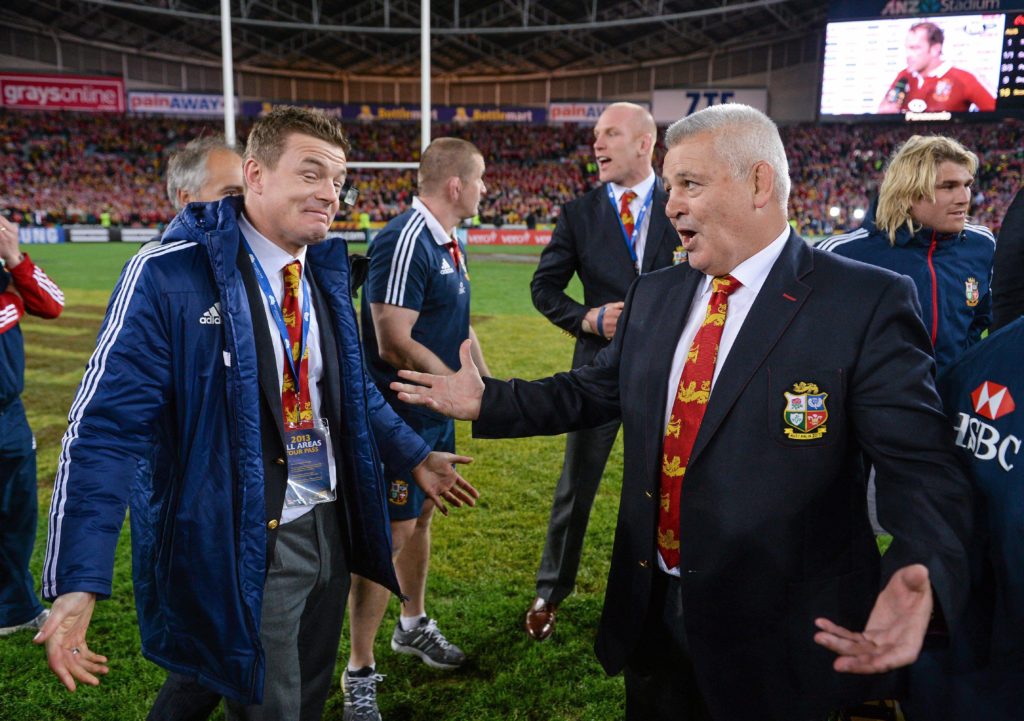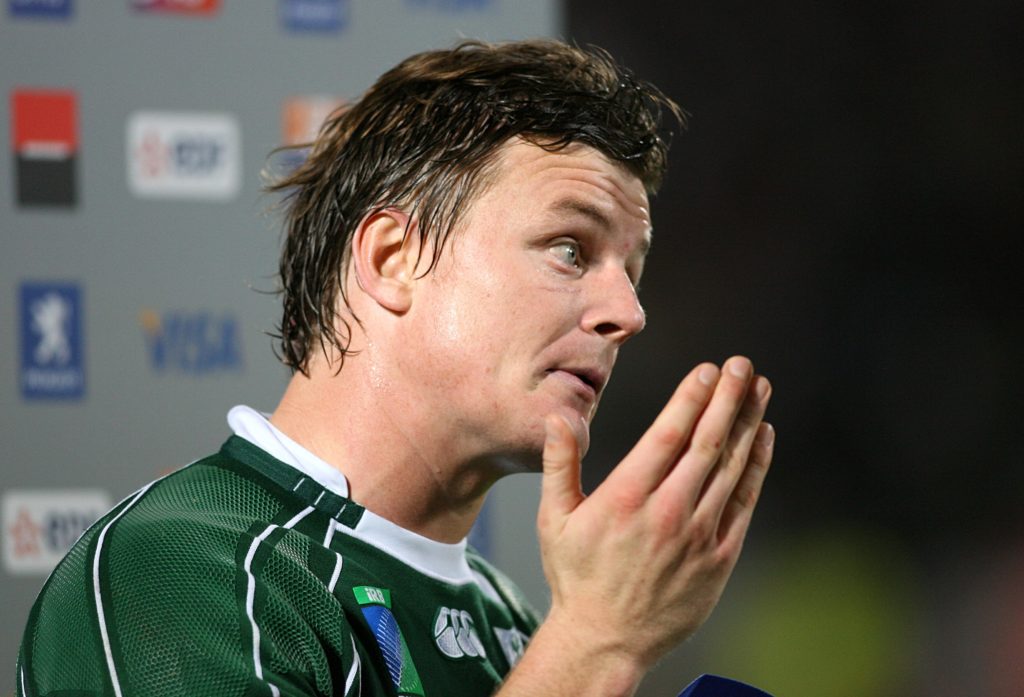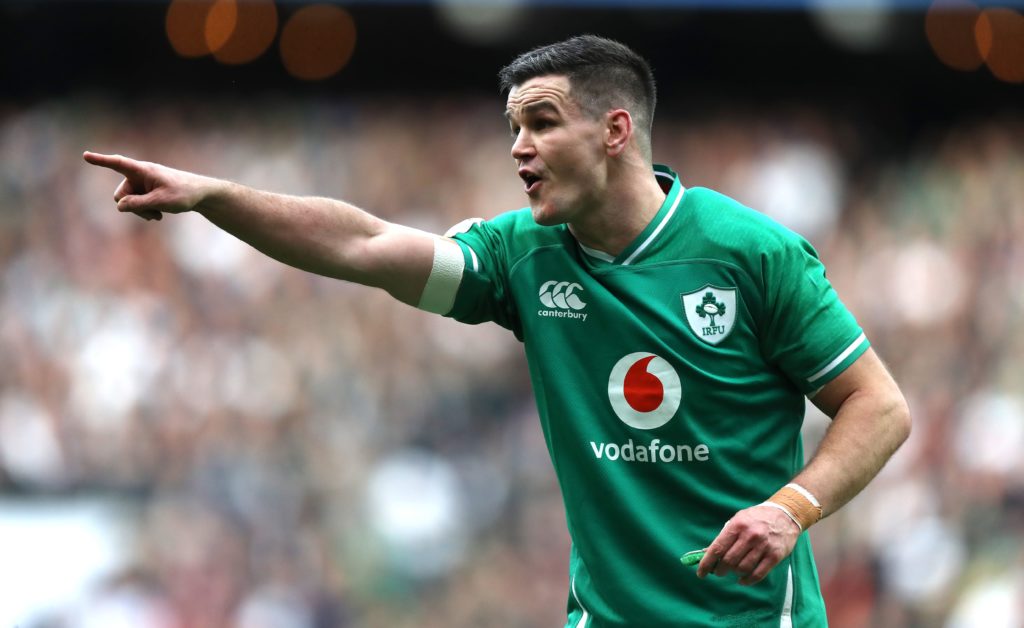The Rugby Centurions Podcast will feature many of the game’s biggest names, men and women who have breached the remarkable benchmark of 100 international caps. Their wisdom, tales, achievements and regrets will regularly be shared on The XV.
On the eve of the seismic final Test between the British and Irish Lions and Australia, Brian O’Driscoll ventured down to the team room deep inside the squad’s hotel.
Over the past two days, he had chewed things over; come to terms with the sickening gut-punch of non-selection for what would be his final act as a Lion. O’Driscoll was dropped for a huge schools cup match at 17 had not been left out of a match-day squad again until that week, double his teenage years, when Warren Gatland cut him from the side that would pummel the Wallabies and seize the 2013 series.
The wizened centre had psyched himself up for the weekend’s rigors. He knew he could not sulk, that the great Lions ethos – indeed any team ethos worth of the name – demands those not selected pour every ounce of themselves into readying the men who are. Except that Gatland had other ideas.
“I came down on the Friday and on our whiteboard it said, ‘Non-23 are not needed at training’,” O’Driscoll tells The Rugby Centurions Podcast. “I thought, they don’t even want us to hold shields. I found that very difficult.
“You just want to have the connectivity to it, and that’s the issue with Lions tours – there is a breakaway group in that final week that just want to be home. I wasn’t ready to be part of that, I just wanted to be part of the group that could create history and even have a small impact in getting them prepared.
“I said to Gats a few years afterwards that I thought that was a mistake, they should have given an option to players that wanted to go training to go and be part of the collective, because in so many teams it’s those that don’t get chosen that prep the team for battle.
“I said that as captain for years and then all of a sudden I had to live it. And I couldn’t be poacher turned gamekeeper because it didn’t suit Gats. I remember that being a long 48 hours before the game and just not being involved in the environment properly.”
You want to be part of the celebrations, to be kitted out, but next-best to that is being involved in the series.
Brian O’Driscoll
At 34, this was O’Driscoll’s fourth and final series. He was a pup in 2001, but a pup with teeth, one of the stand-out players in a trio of mesmeric showdowns clinched by the Wallabies. He was captain four years later, but infamously carted out minutes into the first Test when Keven Mealamu and Tana Umaga upended him from a ruck. Then in 2009, the Lions fell agonisingly short against the might of South Africa.
“It was really important to me to finally win a series,” O’Driscoll says. “I have been very disappointed, we should have won in ‘01, I was sent out of the door in ‘05 and then in ‘09 it was a very, very tight series.
“To get to win one in 2013, albeit from the stands in the third Test was a bit bittersweet. You want to be part of the celebrations, to be kitted out, but next-best to that is being someone that was involved in the series and still having a trophy at the end of it.”

Run the gamut of O’Driscoll’s rugby memories, and you comb through a veritable treasure trove. And how could it be anything less after a career laden with silver? He won eight trophies with Leinster; a Grand Slam, a second championship and four triple crowns with Ireland. He finished with 133 caps and is widely regarded as the finest centre ever to play the game.
The second Test in 2009 stands proud in his memory as a match of extreme brutality. Through Morne Steyn’s penalty at the death, South Africa stole a contest that ebbed and flowed, punctuated by pugilism, broken bodies and at times, outright thuggery.
“Definitely the most physical game I have ever played in,” O’Driscoll says of the showdown in Pretoria.
“We made a really fatal error of not taking possession away towards the end of the first half, got penalised and Frans Steyn knocked over a 50m penalty. You look at those moments and you kind of kick yourself saying, ‘Jesus, we should have been out of sight’. From a physical nature it was colossal.
I don’t know whether it was because he had phenomenal facial hair and looked like a proper man and I was this 20-year-old kid. I was like, oh my god, I don’t know if I belong here.
Brian O’Driscoll
“That was a great tour. Do you enjoy yourself when you’re winning? A lot of the time, yes. But when you think about some of the rugby we had, the fun we had, and maybe from a personal point of view, the pressure was off.
“I’d been captain of the previous tour and it hadn’t gone great, I was a senior player, I had the experience of being on two previous tours yet not the trappings and pressure that comes with being the focal point.
“So, I had a good time, we had a great team spirit and it was just such a fun, fun group to be involved with. It was just such a shame that we didn’t manage to at least get the draw in the second Test and give ourselves a chance of drawing the series in the third, but Morne Steyn!”
O’Driscoll debuted for Ireland at 20 and was captain 23, the golden boy given the ultimate honour. He relied heavily on the old heads around him. In the earliest days, back in 1999, he wondered if he belonged in the Test arena.
“I got three of my first five caps against Tim Horan, a boyhood hero of mine, and one of the best opposition that I came across.

“I remember playing against the USA and seeing a guy called Juan Grobler at 13 and being really scared. I don’t know whether it was because he had phenomenal facial hair and looked like a proper man and I was this 20-year-old kid. I was like, oh my god, I don’t know if I belong here, and yet I was playing against Tim Horan a few months previously and I’d felt okay.
“Maybe it playing in a World Cup at 20 was what got me but thankfully those fears were alleviated, I got my first try for Ireland and then I realised, okay, maybe I do belong here.”
The 42-year-old speaks at length and in glowing terms about Johnny Sexton, who continues to lead Ireland from the front despite the greying of his temples and the almighty battering his body has taken down the years. He says Sexton uses confrontation to fuel his rise.
He did not lead as Sexton does, but there were times when he felt himself brimming with fury.
“In the 2007 World Cup, we were playing Georgia. At half-time, Eddie O’Sullivan said, ‘Don’t throw any long passes whatever you do, they are looking for intercepts’. Two minutes in, Strings [Peter Stringer] threw this 20m pass to me and one of the Georgian centres intercepted and went in under the sticks.
That confrontation with team-mates or venting back frustration fires him up. That’s the beauty of Johnny Sexton.
Brian O’Driscoll
“I was literally so irate, I was jumping up and down like a cartoon character saying, ‘We have just been talking about it’, but that didn’t benefit anyone. Those are the frustrations of the environment and that’s not great leadership.”
Seven years after O’Driscoll retired, Ireland begin their Six Nations campaign in Wales on Sunday. O’Driscoll bowed out on a wave of euphoria in 2014, victory over France sending him off into the sunset with a championship winner’s medal around his neck.
At 35, Sexton is the same age as O’Driscoll was back then, but still steering Ireland, and still vociferous in his appetite to compete at the highest level.
“Johnny is definitely his own person and that’s what makes him tick sometimes,” O’Driscoll says. “That confrontation with team-mates or venting back frustration fires him up. That’s the beauty of Jonny Sexton.

“You talk about him being captain now, but he’s been a leader from day one and the obvious example is the Heineken Cup final in 2011, where we are 16 points down against Northampton. He stepped up and started talking about how incredible a comeback this will be and how you’ll see it the whole time, like Liverpool be 3-0 down to AC Milan, Nadal coming back from two sets down in a final, and how we have to thiknk about changing small things that have gone wrong, and all those positives will add up.
“The thing was, they would have been hollow words if he hadn’t gone ahead and scored 28 points himself. That is real leadership. I don’t have any of those moments per se – it’s all well and good saying those things but you have to deliver.”
The Rugby Centurions Podcast will feature many of the game’s biggest names, men and women who have breached the remarkable benchmark of 100 caps. Their wisdom, tales, achievements and regrets will be shared on The XV each week.


Comments
Join free and tell us what you really think!
Sign up for free